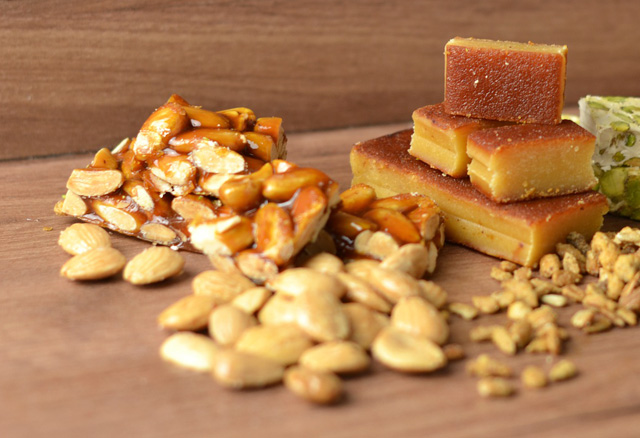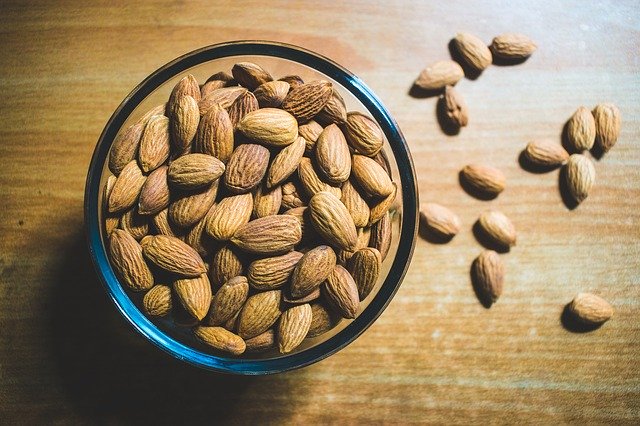Almonds are synonymous with Christmas in Spain. Let’s take a closer look at some of the most popular almond-based Spanish Christmas Sweets and when this love affair with almonds all started…
Almond-based sweets are a Christmas tradition that Spanish people hold dear to their hearts. The best loved Spanish Christmas sweets, turrón, polvorones and marzipan shapes and figurines, all feature almonds and it is hard to imagine a Spanish Christmas without these delights to nibble on.
Spanish Christmas Sweets
Turrón
Turrón is probably the king of Christmas Sweets. The core ingredients of turrón are almonds (approximately 60%), honey, sugar and eggs. There are two traditional turrón recipes: a hard turrón typical to Alicante made with whole almonds and a soft turrón typical to Jijona in which the almonds are reduced to a paste. Nowadays, however, there are many twists on a classic turrón available to choose from in Spanish shops and supermarkets at Christmas time.

Polverones and Marzipan
Other popular almond Spanish Christmas sweets include Polvorones and Marzipan. Polvorones are soft, powdery shortbreads mainly produced in Andalusia, made with ground almonds, flour, lard and sugar. Marzipan is made with ground almonds and sugar and is a very popular Spanish Christmas confection, especially in Toledo where beautiful marzipan shapes and figurines typically adorn Christmas shop windows.
Arabic influence
The practice of using ground almonds in Spanish dessert cookery can be traced back to the Moors (Moor is a term originally used to describe a person from the Roman province of Mauretania, in North Africa). The Moors conquered most of Hispania in the year 711 and stayed until 1492 when the Arab Empire was expelled by Los Reyes Católicos, Ferdinand and Isabel. Nearly 800 years of Islamic influence is still clearly visible in Spanish architecture such as the world famous Alhambra in Granada, art, academia and gastronomy.
Apart from championing almonds, the Moors also introduced Spain to rice, sugar cane, oil frying, vinegar preservation and spices such as saffron, (azafrán), cumin (comino), coriander (cilantro), cinnamon (canela), and nutmeg (nuez moscada). Many of the most iconic Spanish dishes, such as turrón and paella (is there anything more Spanish than a paella?), are indelibly linked with Arabic culture.
We also shouldn’t forget the contribution Arabic has made to has made to the Spanish language. Spanish words such as aceite (oil), berenjena (aubergine), jarra (jug), taza (mug), dado (dice) barrio (neighbourhood), tarea (task) and ojalá (I wish) all originated in Arabic. Almendra (almond) is another one. Most Spanish words that begin with –Al are of Arabic origin such as: albaricoque (apricot), albahaca (basil), alcalde (mayor), almacén (warehouse), almohada (pillow), algodón (cotton), alfombra (rug), and albóndigas (meatballs).
